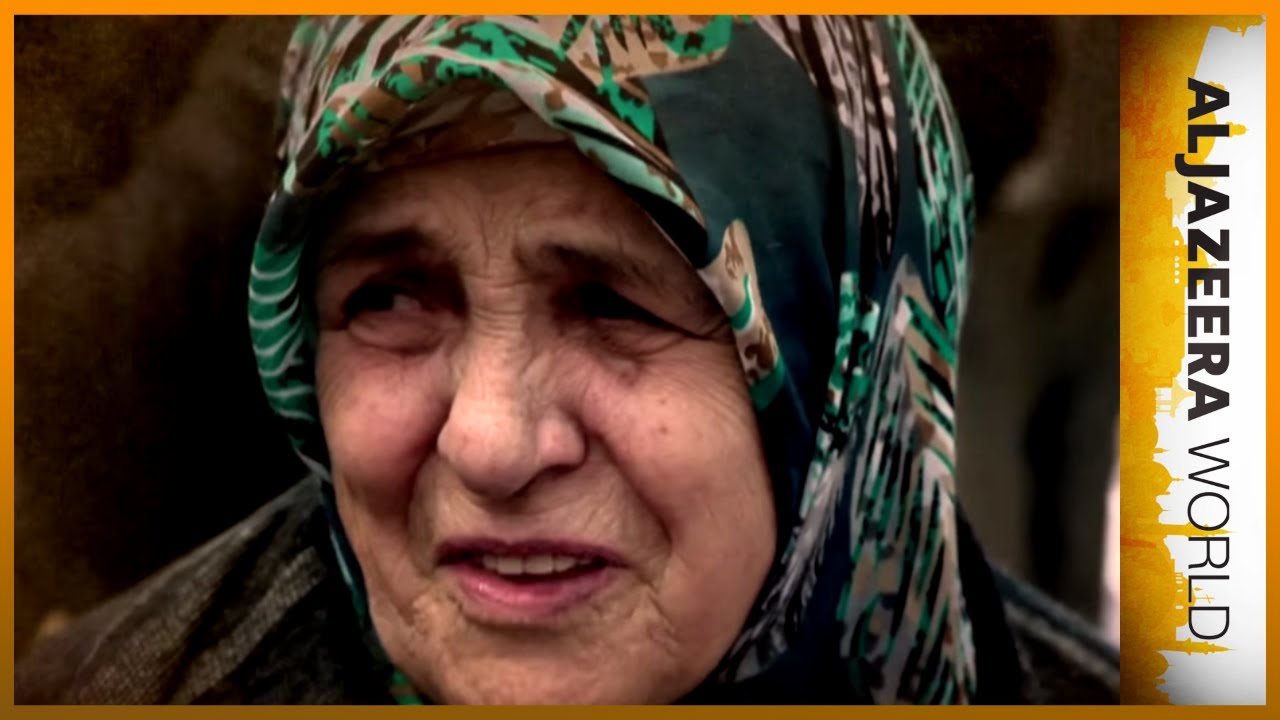🇹🇷 🇬🇷 The Great Population Exchange between Turkey and Greece | Al Jazeera World
As part of the Treaty of Lausanne in 1923, Greece and Turkey agreed to uproot two million people in a massive population exchange, the lasting effects of which are still felt by some in both countries today. Only since the 1990s has it been possible for the ‘exchangees’ caught up in the upheaval and their families to visit what they see as their ancestral villages in Greece and Turkey.
Huseyin Selvi was forced out of Greece when he was five, but at the age of 97 he was able to travel in a group from Turkey to the village where he was born. The exchangees had to travel on foot, by train and by sea and many of the ships involved in this mammoth operation were full to overflowing. The elderly and the young especially suffered from the shocking travel conditions.
“My mother had to throw my younger sister, who was three or four, into the sea. I don’t remember it but that’s what my mother told me”, says Huseyin.
Numan Toker, a second generation exchangee, also travelled to the village in Greece his late mother was forced out of. “It was my mother’s last wish. Now I’ll bring water from there, to her grave. I’ll bring soil…She was longing to see it [village] again but never had the chance. I asked her if I could take her. She replied, “Yes son, please. Would you really take me there?” Of course, I said I would but it wasn’t meant to be. We couldn’t make it in the end,” says a tearful Numan.
His ancestors had lived in Greece for 400-500 years, until the population exchange. Recalling his mother’s stories, Numan says “She cried, laughed and talked about what they used to do. The day they were called back to Turkey and were leaving, they left 500 sheep and their farmland behind. She even left dinner cooking on the stove. They left everything behind.”
Population shifts occurred in the early twentieth century as old empires disintegrated and new nation states emerged. But these changes often raised complex questions of identity for the ordinary people caught up in them.
Greek Orthodox Christians and Muslims had lived together under Ottoman rule for centuries, though not always entirely peacefully. The Greek war of independence from the Ottomans was fought between 1821 and 1832 and the new state of Greece founded. This created tension which increased after the Balkan Wars of 1912 and 1913. Muslims remaining in Greece and the Balkans suffered discrimination and persecution, while Greek Orthodox Christians were expelled by the Ottomans from the Aegean region.
After the Ottoman defeat in World War One, the victorious allies maneuvered to divide up their former empire. This was resisted by the Turkish nationalists led by Mustafa Kamal Attaturk who fought the Turkish War of Independence between 1919 and 1923.
At Lausanne in Switzerland, all the parties sat round the conference table in 1922-23. Part of the resulting Treaty of Lausanne involved an agreement between Greece and Turkey to forcibly exchange around 1.5 million Greek Orthodox Christians and a lower number of Muslims in the largest population displacement of modern times.
When the exchangees arrived at their destinations, they often faced serious problems integrating into their new communities – and some of their social, housing and education problems have persisted.
Language was an immediate problem and exchangees like Nuriye Can who left Greece in 1923 for Turkey were all Greek-speakers. It was hard for the first generation to learn Turkish after having grown up with Greek as their native language.
“I couldn’t speak any Turkish when I got married”, says Nuriye. “My mother-in-law used to ask me why I spoke the language of an ‘non-believer’. She asked, “Why don’t you speak your father’s language?” I did eventually learn Turkish.”
There are now reciprocal visits by both Greek and Turks, as part of a cultural project supported by the European Union and the Foundation of Lausanne Treaty Emigrants.
“I thought it was a debt of honour, a moral obligation to come and kiss the ground where my grandfathers were born,” says Evangelia Kiortci who found her grandparents’ village. “They didn’t make it, nor did my parents but I’m a third generation refugee, and I’ve come…They left for Greece and they’ve always had this sorrow. They had never had the chance to come back and walk on the same ground. I’m deeply moved.”
For Dimitris Dayioglu, a visit to the Turkish village his grandmother was expelled from, was an equally emotional experience. “My grandmother wanted very much to g
Subscribe to our channel: http://aje.io/AJSubscribe
– Follow us on Twitter: https://twitter.com/AJEnglish
– Find us on Facebook: https://www.facebook.com/aljazeera
– Check our website: http://www.aljazeera.com/
#AlJazeeraWorld #Turkey #Greece




![Private: [ID: 9sSMjmulbSM] Youtube Automatic](https://nezha.pro/wp-content/uploads/2023/08/private-id-9ssmjmulbsm-youtube-a-236x133.jpg)
![私密內容: [ID: vOErbAXbHmo] Youtube Automatic](https://nezha.pro/wp-content/uploads/2023/08/id-voerbaxbhmo-youtube-automati-236x133.jpg)
![私密內容: [ID: 9OKAgo7yn3U] Youtube Automatic](https://nezha.pro/wp-content/uploads/2023/08/id-9okago7yn3u-youtube-automati-236x133.jpg)
![私密內容: [ID: geb2Vb2fbss] Youtube Automatic](https://nezha.pro/wp-content/uploads/2023/08/id-geb2vb2fbss-youtube-automati-236x133.jpg)
![私密內容: [ID: zSXoeqoIwL4] Youtube Automatic](https://nezha.pro/wp-content/uploads/2023/08/id-zsxoeqoiwl4-youtube-automati-236x133.jpg)
![私密內容: [ID: 9c8aHubW7w4] Youtube Automatic](https://nezha.pro/wp-content/uploads/2023/07/id-9c8ahubw7w4-youtube-automati-236x133.jpg)
![私密內容: [ID: 9W4-q3cFxSA] Youtube Automatic](https://nezha.pro/wp-content/uploads/2023/06/id-9w4-q3cfxsa-youtube-automati-236x133.jpg)
![私密內容: [ID: __dHaABgd1E] Youtube Automatic](https://nezha.pro/wp-content/uploads/2023/06/id-dhaabgd1e-youtube-automatic-236x133.jpg)
![私密內容: [ID: ALM6rESu6S4] Youtube Automatic](https://nezha.pro/wp-content/uploads/2023/06/id-alm6resu6s4-youtube-automati-236x133.jpg)
![私密內容: [ID: xJwT02swkuA] Youtube Automatic](https://nezha.pro/wp-content/uploads/2023/05/id-xjwt02swkua-youtube-automati-236x133.jpg)